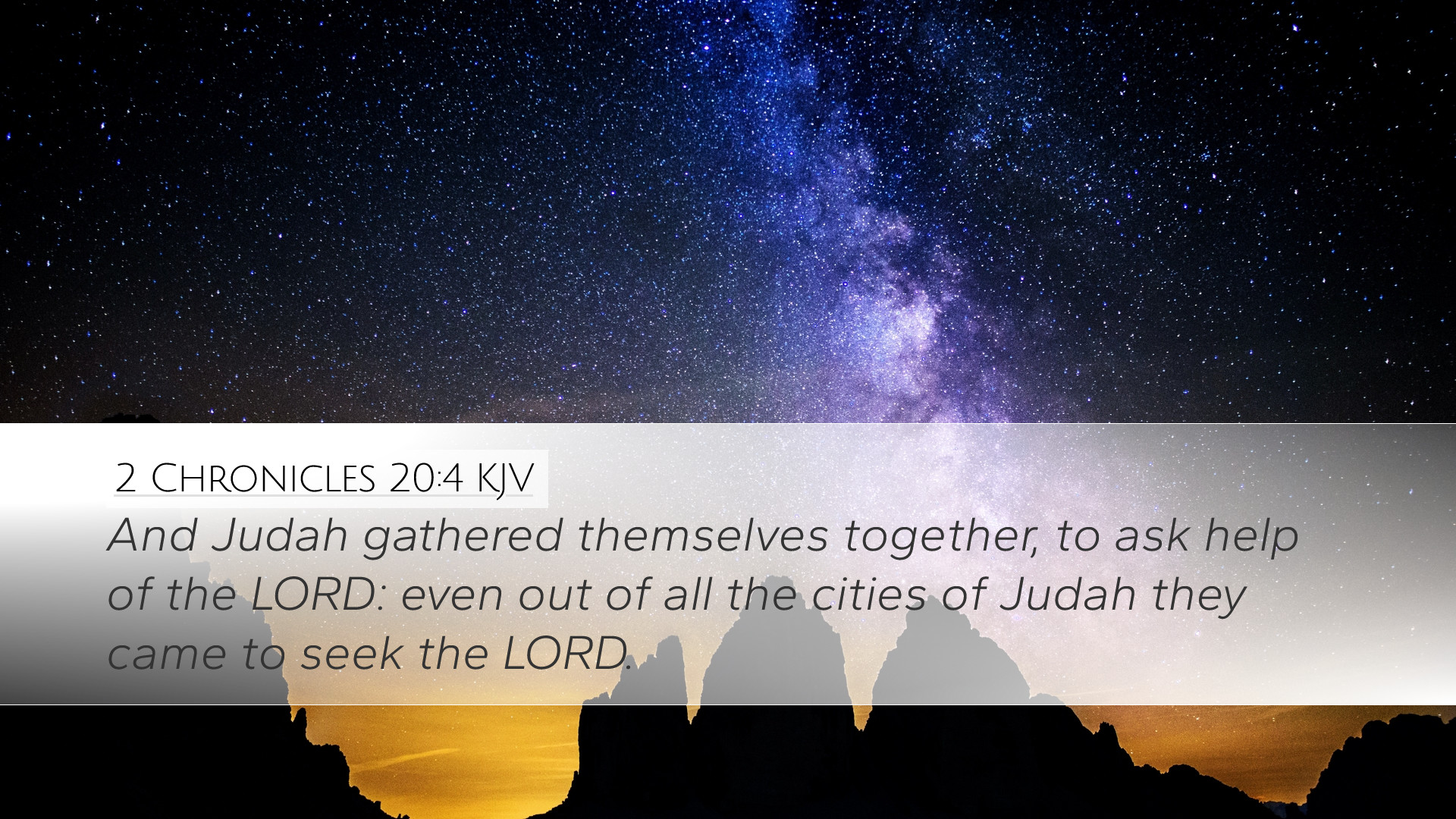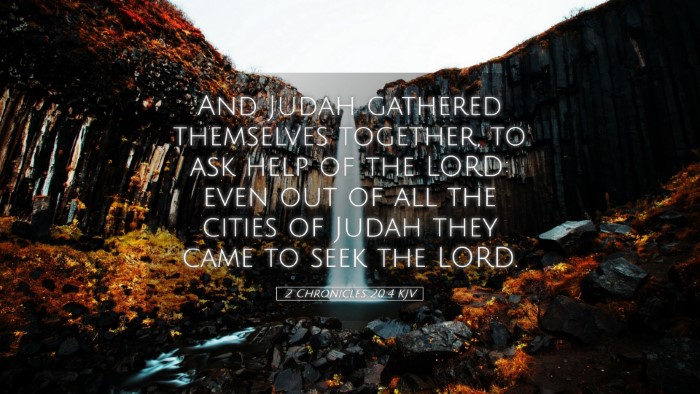Bible Commentary on 2 Chronicles 20:4
Verse Overview: "And Judah gathered themselves together, to ask help of the LORD: even out of all the cities of Judah they came to seek the LORD." Herein lies a profound moment in Judah's history, embodying the collective recognition of a need for divine assistance in times of distress.
Contextual Background
The events described in this passage occur during a turbulent period in Judah's history when King Jehoshaphat reigns. This chapter recounts an imminent threat from enemy nations and Jehoshaphat's response, showcasing both leadership and faith.
The Gathering of Judah
The phrase “Judah gathered themselves together” signifies unity among the people. This collective act emphasizes:
- Community Response: Such gatherings are crucial, especially in crisis moments. It reinforces the idea that challenges faced by an individual or a nation often demand collective action and prayer.
- Shared Faith: The unity of Judah in seeking the Lord illustrates the importance of shared faith within a community of believers. It highlights how collective prayer can bolster spiritual strength.
Seeking Help from the Lord
Judah’s decision to seek divine help is of utmost significance:
- Recognition of Need: The people understood their vulnerability against formidable enemies. Their action demonstrates humility and a dependency on God’s power rather than their own strength.
- Prayer as a Weapon: Seeking the Lord reveals the recognition that spiritual warfare often precedes physical confrontations. This principle persists in contemporary faith: prayer and seeking God should always precede any action.
Lessons from Historical Commentaries
The insights from classical commentaries provide depth to our understanding of this verse:
- Matthew Henry: He emphasizes the significance of prayer in a critical moment. Henry notes that this gathering was not simply a congregational event, but a solemn assembly dedicated to asking for God’s intervention. He argues that true repentance and seeking God are essential for His help.
- Albert Barnes: Barnes highlights the necessity of seeking divine guidance in times of trouble. He points out that the people of Judah exemplified what it means to turn to God for assistance, which is a cornerstone of spiritual maturity.
- Adam Clarke: Clarke reflects on the motivations behind seeking the Lord. He views this assembly as a demonstration of both desperation and faith. Clarke notes that the scripture emphasizes prayer not only as an expression of need but as an act of trust in God's providence.
Implications for Modern Believers
The call to “seek the LORD” remains relevant today. Some modern implications derived from this verse include:
- Unity in Crisis: Just as Judah unified, modern believers are encouraged to assemble, whether in churches, small groups, or community gatherings when facing difficulties. This unity can lead to powerful prayers and a strengthened community.
- Dependence on God: In our technologically advanced society, the tendency can be to rely on human solutions. This verse serves as a reminder to prioritize spiritual dependence on God over worldly answers.
- Faithful Response: When confronted with trials, seeking God should be the first response, not the last resort. This requires cultivating a habit of prayer and divine seeking in daily life.
Conclusion
2 Chronicles 20:4 is a clarion call for believers to gather in unity and seek divine assistance amidst life's battles. Through the lens of this commentary, we glean important lessons on community, dependency on God, and the power of collective prayer. It serves as a timeless reminder that in our struggles, turning toward God not only cultivates faith but also empowers believers to face challenges with the assurance of His presence and help.


